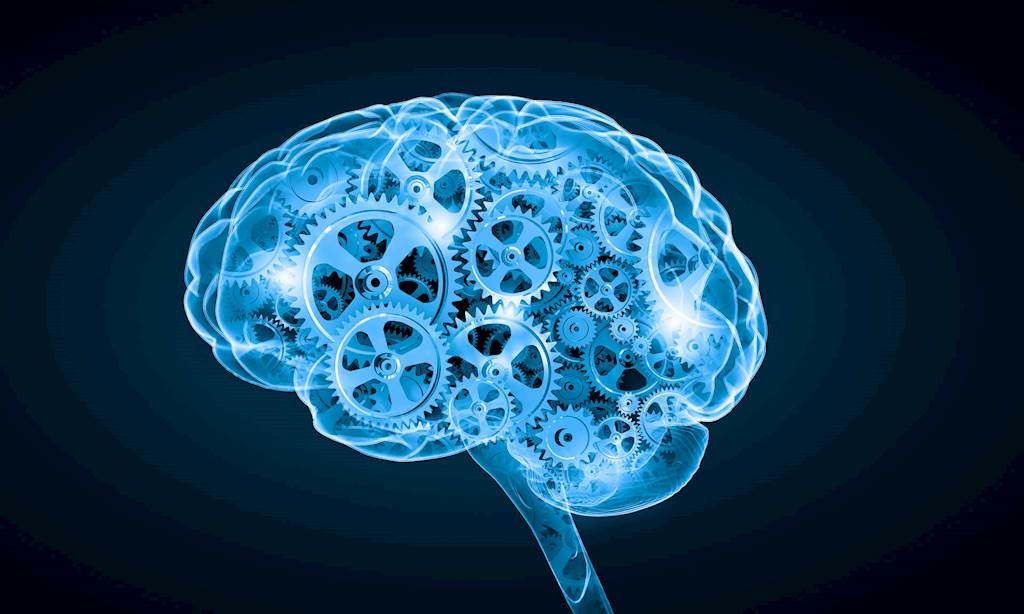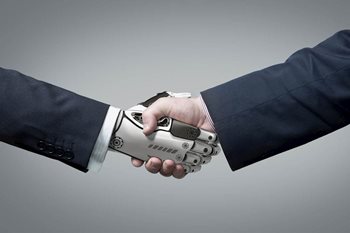Artificial intelligence is among the biggest trends transforming the tech sector today. No longer restricted to the pages of science fiction, the latest solutions promise to revolutionize how we interact with IT and go about our day-to-day lives. It feels as though we've been promised for years that true AI is just around the corner. But now, we really do seem to be closer than ever before, thanks to great steps forward in areas such as processing power, access to data and scalability.
But while bigger, better computers present great potential for AI, it can be easy to get lost in the hype and lose sight of the bigger picture. As a result, there remains a number of misconceptions and uncertainties about exactly what the technology is and what it can do.
What is artificial intelligence?
Artificial intelligence (AI) covers a wide range of technologies, but they all essentially include some capacity for software to make decisions without direct human input, based on what’s determined as the most appropriate response. In other words, it means machines that think for themselves.
But there's much more to AI that this simplified description. For instance, one element of AI that's getting a lot of attention in the business world right now is 'machine learning'. While this is sometimes treated as synonymous with AI, it specifically refers to a subset of the technology that is able to analyze decisions and identify where they can be improved for the future.
This is the ability to make the next decision based on the outcome of the last one and will theoretically be better - in much the same way children adapt and gain understanding through experience.
But while having AIs that can pass for human is often seen as the ultimate goal of science fiction, and is why the Turing test to see if an AI can fool a person into believing they’re interacting with a human is often cited as a key market for AI, it's far from the only thing the technology is useful for.
What can AI do today?
AI, and machine learning in particular, have a wide range of applications today. In fact, chances are you already engage with AI on a daily basis, often without realizing it. If it's a voice search such as Siri, automatic image recognition for your photos, or using a chatbot to interact with a brand, AI has already worked its way into our everyday lives.
On a fairly simple level, the recommendation engines used by the likes of Netflix and Spotify are an example of machine learning. The more a user engages with these, the better an idea the algorithm has of what they will and won't enjoy, so future suggestions should be much more in line with an individual's tastes.
But this is just the tip of a very large iceberg. For example, many banks and retailers use this technology to detect and prevent fraud. By building an understanding of what a person's normal behavior looks like, it makes it easier to spot any anomalies that may be indicators of fraud.
Learning on its own
Chess-playing computers have been around for a long time - it was all the way back in 1997 when IBM's Deep Blue became the first machine to defeat a human grandmaster. But it wasn't really intelligence as it still relied on humans to program it with the necessary knowledge.
Today's AI can do so much more. Recently, Google announced that the latest version of its AlphaGo AI had learned to play Go - arguably a much tougher challenge than chess - to the very highest level. But what makes it extraordinary is that it's done it without any human help. All Google's engineers did was teach it the rules of the game, then left it to figure out strategy on its own, learning through experience just like a human would.
Learning a game like Go may seem trivial, but it's actually a hugely significant step forward, as it paves the way for general purpose algorithms that can take on some of the most complex problems facing humanity today.
Controlling your car
No discussion about AI would be complete without a brief mention of one of the biggest and most high-profile AI applications - the self-driving car. What's fascinating about this is that big tech companies like Google, disruptive innovators like Tesla and traditional automotive manufacturers such as Ford are all looking to get involved and put their own spin on the technology - and that level of competition is driving major innovations very quickly (pun intended).
Even a couple of years ago, it seemed like this technology was a long way off, but driverless cars are now being tested on real streets all over the world, and it seems the biggest hurdles to widespread adoption are now regulatory rather than technical. It seems it's no longer a case of if they hit the mainstream, but when.
Overcoming the language barrier
One of the biggest barriers for communicating with AIs has long been the quirks of human language. Until now, if you wanted to tell a computer to do something, you had to choose your words very specifically and speak unnaturally slowly and clearly to have a chance of being understood.
But advances in natural language processing have changed all that. We can see it already in consumer devices like Amazon Alexa, which can interpret a variety of casually-phrased requests to offer a weather forecast, order food or answer questions. But this is just the tip of the iceberg - it's already branching out into sci-fi style real-time translation and learning as it goes to understand deeper meanings that should see such solutions enter a wide range of practical business and consumer applications in the coming years.
How will AI change business?
These developments will naturally have a huge impact on the way enterprises use their IT. While big ideas such as fully-functional virtual assistants or 'killer robots' tend to dominate people's thinking, it’s in the day-to-day applications where a lot of organizations stand to transform their operations.
For example, using artificial intelligence to track a variety of market conditions and scenarios - both from within the business and external factors - can help with product development, sales and marketing, to name a few, by ensuring that businesses are in touch with the latest changes and are providing what their customers expect.
Some sectors will find this technology particularly useful. In healthcare, AI can be used in a number of ways to improve health on both an individual and community level. It can, for instance, track wide patterns and trends to alert providers to potential issues, or review medical trial data to identify the most effective treatments. On an individual level, it can create personalized health and wellbeing plans by looking at data gathered from wearables and other sensors, reduce errors, guide robot-assisted surgery, and much more.
Being creative
One argument for humans over machines is that no AI can truly be creative, as it doesn't have the same appreciation for art or culture as a human. But while that may be the case, it can do a pretty convincing impression, whether it's creating art, music or literature.
AI has been able to copy the styles of famous artists for a while, but now, it can create entirely new styles from scratch. Elsewhere, AI has also been used to create music albums and even write poetry (albeit of questionable quality).
This leap forward in creativity could open whole new avenues for businesses and power their human workforce. Where before businesses have been limited to the creativity of their employees, the possibility that humans could leverage AI to fuel this creativity and drive innovation is a huge advantage.
Why is AI needed?
Given the concerns that some prominent people have raised about the potential future implications of AI, such as Stephen Hawking's warning that the technology "could be the worst event in the history of our civilization", some people may wonder whether we really need AI. After all, we've got this far without it, so is it really worth the risk of creating a Skynet-type future?
But the reality is, AI has already proven to be an invaluable asset in an age where the amount of data businesses have to deal with is spiraling far beyond what would be practical for humans to manage without help. The amount of data in the world is expected to reach 163 zettabytes by 2025, much of which will be generated automatically by a new generation of IoT sensors. Therefore, trying to manage this without the assistance of AI will be an impossible task.
General AI solutions that can be adapted to numerous problems aim to make our lives easier, take the tedium out of manual and human-led processes and develop faster solutions to the biggest problems currently facing the world.
Access the latest business knowledge in IT
Get Access







Comments
Join the conversation...